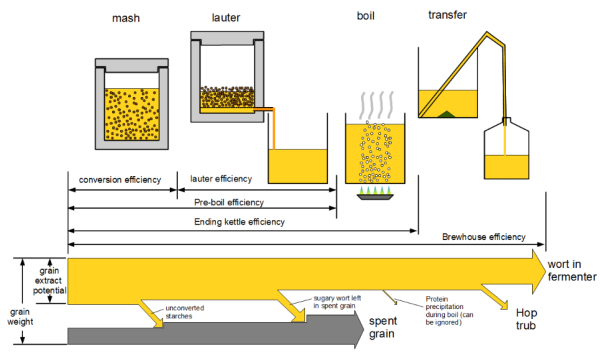Yep I realized that right after I said it and edited the above post
BH efficiency does account for final wort volume since some of the wort absorbed by the grain does remove sugars that could have ended up in the kettle
So if brewhouse efficiency = mash efficiency * lauter efficiency, the only way that BH = ME is if the lauter is 100% efficient meaning the total volume of water used = the total volume of wort collected with 100% of the mash sugars ending up in the kettle
No this isn’t right...at least not in BeerSmith usage. BH will equal ME if the entire kettle goes Int the fermenter. No line losses, no trub or hops left in kettle.









































![Craft A Brew - Safale BE-256 Yeast - Fermentis - Belgian Ale Dry Yeast - For Belgian & Strong Ales - Ingredients for Home Brewing - Beer Making Supplies - [3 Pack]](https://m.media-amazon.com/images/I/51bcKEwQmWL._SL500_.jpg)


















